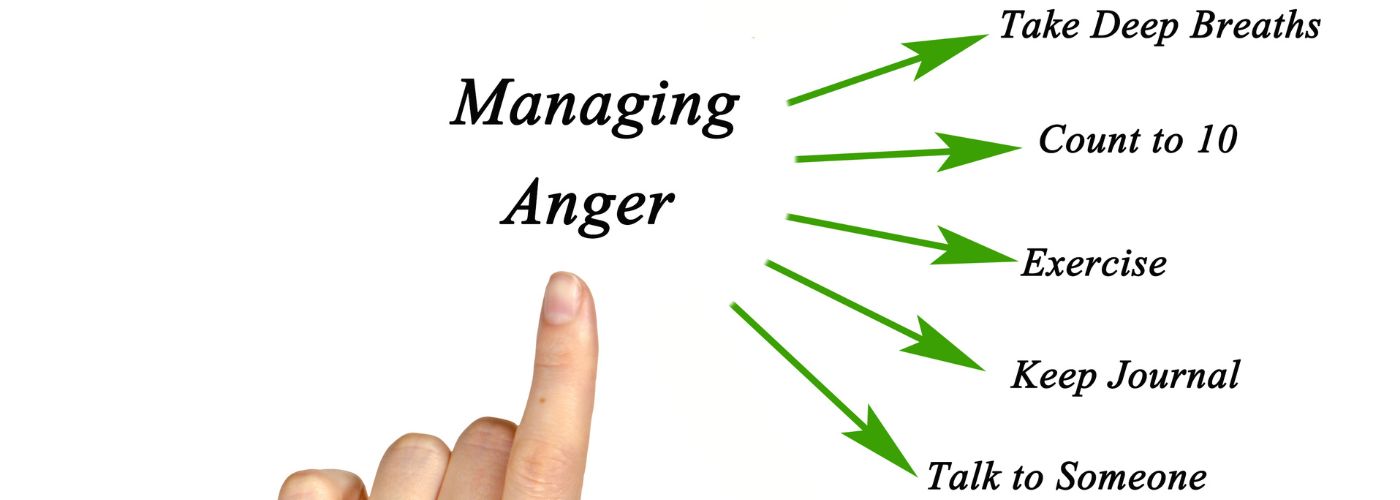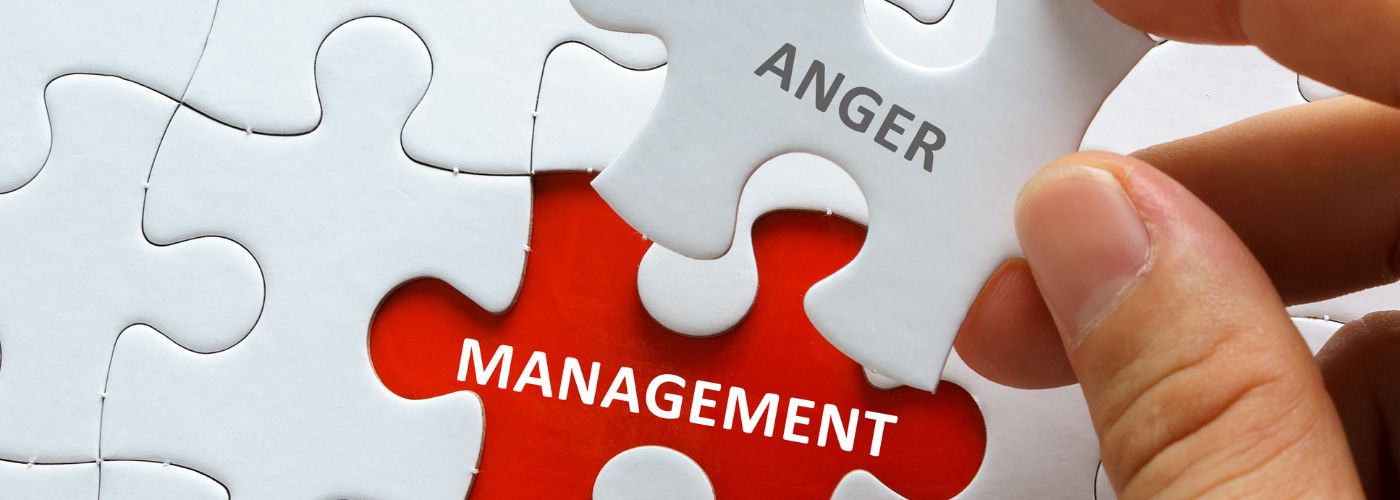Understanding anger management is an important first step if you’re considering therapy to navigate the complexities of negative emotions.
In this guide, we’ll delve into the world of anger management, exploring who might benefit from it, what’s taught in anger management classes, and how Cognitive Behavioral Therapy (CBT) can be a powerful tool in managing anger.
Who Needs Anger Management?

Anger is a natural emotion, but when it becomes overwhelming or leads to destructive behaviors, seeking help is a courageous and proactive step. Anger management is not reserved for a specific group of people; it can be beneficial for individuals from all walks of life. Consider exploring anger management if:
Frequent Outbursts: If you find yourself frequently experiencing explosive anger that affects your relationships, work, or overall well-being.
Physical Aggression: Engaging in physical aggression, whether towards others or objects, is a sign that your anger might be reaching harmful levels.
Legal Consequences: If your anger has led to legal consequences, such as assault charges or property damage.
Relationship Strain: If your anger is causing strain in your relationships with family, friends, or colleagues, and you’re struggling to maintain healthy connections. Depending on your circumstances, family therapy or couples therapy may also be worth considering.
Workplace Challenges: If anger is impacting your performance at work, causing conflicts with coworkers, or even jeopardizing your job.
Remember, seeking help for anger management is not a sign of weakness but a proactive choice to improve your emotional well-being and the quality of your relationships.
What Anger Management Classes Teach

Anger management classes are designed to provide individuals with the skills and tools needed to manage anger in healthier ways. Here’s a glimpse into what these classes typically cover:
Understanding Anger Management: Anger management classes often start by helping participants understand the nature of anger. This involves recognizing triggers, understanding physiological responses, and exploring the impact of anger on physical and mental health.
Communication Skills: Effective communication is a key component of anger management. Participants learn how to express their feelings assertively, listen actively, and communicate needs without resorting to aggression.
Stress Management: Stress is often a precursor to anger. Anger management classes teach stress reduction techniques, such as deep breathing, mindfulness, and time management, to help individuals develop the skills needed to better address anxiety and stress.
Conflict Resolution: Learning how to resolve conflicts without escalating into anger is a vital skill. Anger management classes provide strategies for de-escalating conflicts, finding common ground, and negotiating solutions.
Cognitive Restructuring: This involves challenging and changing negative thought patterns that contribute to anger. Participants learn to identify irrational thoughts and replace them with more balanced and realistic perspectives.
Behavioral Strategies: Practical techniques are taught to help individuals interrupt escalating anger and replace aggressive behaviors with more constructive responses. This may involve taking a time-out, using relaxation techniques, or finding alternative outlets for frustration.
Do Anger Management Classes Work?
The effectiveness of anger management classes varies from person to person, but many individuals find them beneficial in gaining better control over their anger. Success often depends on factors such as the individual’s commitment to change, the quality of the program, and the guidance of a skilled therapist or facilitator.
Research suggests that structured anger management programs, especially those incorporating cognitive-behavioral approaches, can be effective in reducing anger and aggression. However, success requires active participation, practice of learned skills in real-life situations, and ongoing commitment to personal growth.
In terms of understanding anger management and how quickly it works, it’s important to note that attending a single anger management class may not yield immediate results. Like any skill, managing anger is a gradual process that requires time, practice, and continuous self-reflection.
How To Use CBT For Anger Management
Cognitive Behavioral Therapy (CBT) is a widely used therapeutic approach for managing anger. CBT helps individuals identify specific triggers that lead to anger. Addressing the root causes of anger is crucial for developing targeted coping strategies.
Participants learn to recognize and challenge negative thought patterns associated with anger. This involves questioning the validity of thoughts and replacing them with more rational and balanced alternatives.
CBT equips individuals with practical coping strategies for understanding anger management and practicing it in real time. These may include relaxation techniques, cognitive restructuring, and problem-solving skills.
CBT addresses behavioral aspects of anger by teaching individuals to modify aggressive responses. This may involve practicing assertive communication, using time-outs, or finding alternative ways to express frustration.
Regular self-monitoring is a key component of CBT. Individuals track their anger episodes, identify patterns, and assess the effectiveness of implemented strategies. This ongoing evaluation allows for adjustments and refinements as needed.
When it comes to understanding anger management, it’s important to know that CBT is not just about short-term solutions; it focuses on equipping individuals with long-term strategies for managing anger and preventing relapses. This may involve building resilience, enhancing emotional regulation, and fostering a positive mindset.
If you’re considering therapy for anger management, working with a CBT-trained therapist can provide personalized guidance and support tailored to your specific needs.
Understanding anger management is a significant step toward cultivating emotional well-being and healthier relationships. Whether you’re exploring anger management classes or considering therapy with a CBT approach, remember that seeking help is a brave and proactive choice. Your journey towards a more balanced and fulfilling emotional life begins with understanding and compassionate support!

Related Stories
How Therapists Differentiate Social Anxiety vs Generalized Anxiety
Feeling anxious is common, but the root of that anxiety can vary significantly. Social anxiety
Jan
Impact of Social Media on Adolescent Anxiety
Many teenagers feel more anxious than ever, and social media might be playing a big
Dec
Mindful Practices To Cope With Divorce
Divorce can feel like a storm that turns your life upside down, leaving you lost
Nov